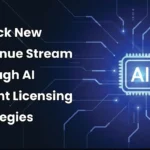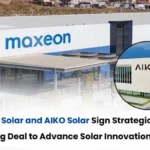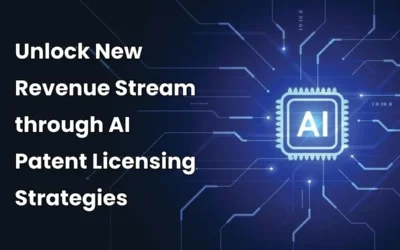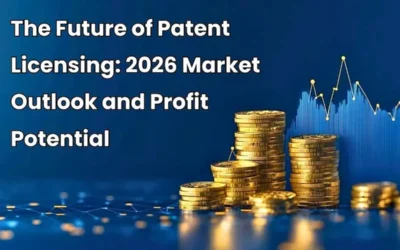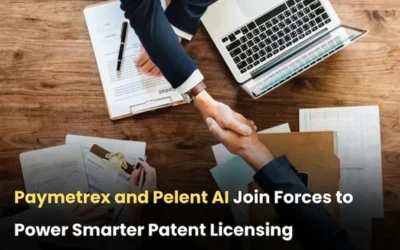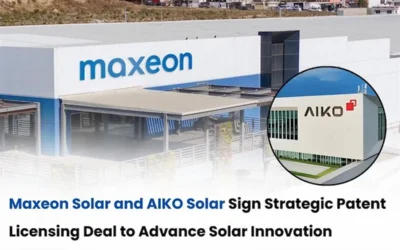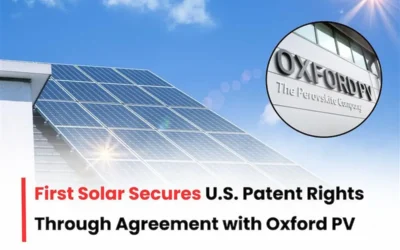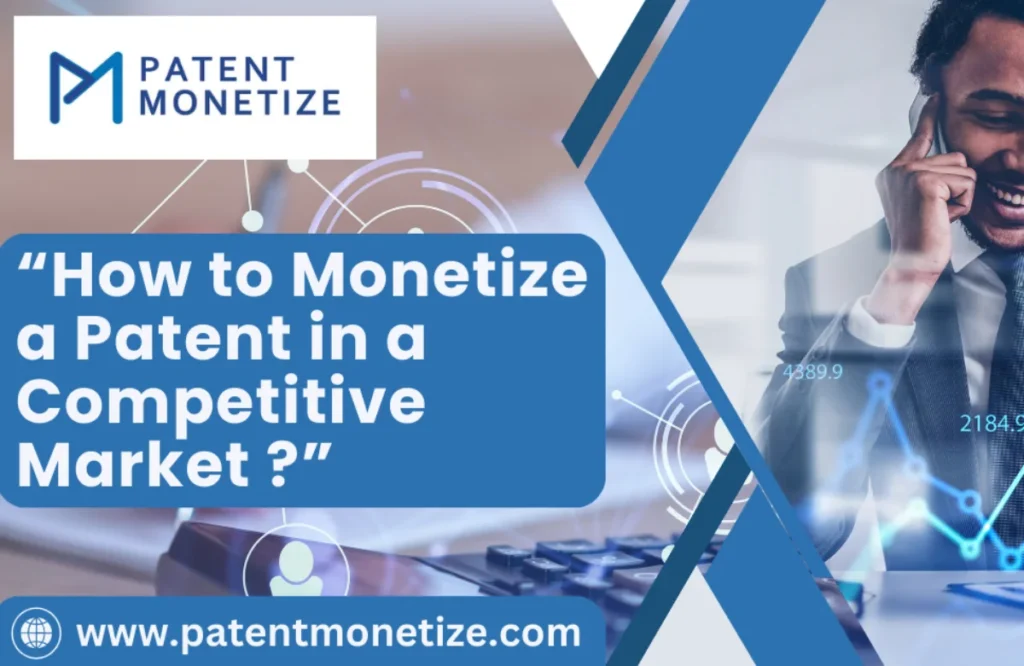
Patents are such great assets; with them, the inventors and businesses possessing them can reap exclusive rights on their inventions. The concept of a patent is an exciting idea, but such an idea has to be materialized into cold hard cash particularly in a very crowded marketplace. And that’s where strategic thinking becomes important since it is never easy to cut out in a crowded marketplace, but when the time is just right, money can be extracted from a patent profitably as well as richly. This is the article that will guide you through the process and strategy on how to monetize a patent in a competitive market. From licensing to selling, we go through various means of which you can exploit your intellectual property to raise revenue and negotiating the competitive landscape.
Understanding the Value of a Patent
Before digging further into strategies on how to monetize patents, let’s try to understand what it actually means to have a patent. Of course, a patent is a government grant which grants the inventor or patent holder the exclusive rights to make, use, sell, and license the invention for a period of time, usually 20 years from when the patent was filed. The most important advantage of holding a patent is that no person can make, use, or sell your invention unless you allow him or her to.However, in a competitive market, the worth of a patent is much more than legal protection. Many economic benefits that a patent could generate may be created, including:
- Exclusive Rights: Through a patent, you obtain patent rights that include exclusivity rights over an invention. A patent gives you the right to regulate the usage of your invention and will not let other people use it.
- Revenue Generation: by way of license agreement and, the second through the sale of the patent rights themselves.
- Market Positioning: Patentable technology enhances the value in your market position with new products that are significantly more differentiable from your competitors.
- Increased Business Value: Patents enhance business value and make the business more attractive to investors, partners, and acquirers.
Now knowing this, here are some winning strategies for cashing in on your patent in a competitive market.
Licensing Your Patent
The second and most massive source of income after the awarding of the patents would be licensing. It happens when a permitted contract or license authorized to a third party, known as the licensee, for some fee in exchange for the authorized use, manufacture, or marketing of your invention for a consideration in the form of royalties or one-time outright payment. In licensing, money could enter your pocket through the license but not necessarily by interacting with its manufactured or marketed products.
Types of Licensing Agreements
But there are different types of licensing agreement, and each one has its benefit.
- Exclusive License: This is an exclusive license agreement with the licensee for the exclusive use of your patent in a certain market or area. Such a deal will go with a more significant upfront pay or a high royalty rate simply because the licensee is guaranteed to be the only one with access to your creation.
- Non-exclusive License: In a non-exclusive license, many parties are authorized to license one patent. Of course, patent owners will sure to keep their royalty low while several licensees translate into an enormous amount of income.
- Sublicensing: Sublicensing provides you with the right to transfer the patent license to third parties. This brings about more penetration and puts a revenue stream into your pocket but ought to be extremely well managed and controlled as sub-license, you may miss getting the full compensation.
Finding Licensees
You will need to find interested licensees who will use your patent. This could include:
- Companies within the same industry: Look for companies in your space or an allied industry that might be interested in taking a license on your patent.
- Patent brokers: Patent brokers can connect you to licensees and negotiate licensing terms.
- Trade shows and industry events: Industry events put you in touch with potential partners and interested companies about new technologies.
Any prospective licensee must be scrutinized for due diligence to ensure that they have the resources and capabilities to commercialize the invention.
Read More: OPPO Grants Global 5G SEP License to Leading Chinese Carmaker
Selling Your Patent
If you want to take a sum over an always available income then perhaps the best exit could be through the sale of your patent. When you are selling a patent, then it is essentially giving up your rights and ownership over to the buyer who might do pretty much what he likes with it or create licenses for the patent.
When to Sell a Patent
It just might make good sense to sell a patent when:
- You don’t have the resources that would help bring the invention into the market.
- You need a one-time payment instead of having a steady flow of royalties.
- You must sell your patents for fiscal or strategic reasons.
You will need an appropriate buyer, whether an internal firm in industry or an investment firm. And then there are patent brokers you can avail.
How to Set the Right Price
Of course, patent selling is highly complicated when discussing pricing. First, the values are subjective or may depend upon other factors and variables such as:
- Market demand: where your new technology or any other invention highly exists in this marketplace.
- Patent strength: this refers to the breadth in your claims while considering the degree of legal soundness of that patent.
- Development stage: A fully developed product and ready to launch in the market may command high premium money when compared to that which is in the concept state, not even fully explored yet.
Patent value needs proper appraisal by expert people while offering a price tag for your invented product.
Using Your Patent to Attract Investment
It is a strategic move in a competitive market to attract investment as a method of monetizing patents without necessarily losing ownership. The process is made worthwhile by valuable patents because businesses become attractive to investors if such patents seem to give a potential or competitive advantage or future sources of revenue.
How to Leverage Your Patent for Investment
Equity Financing: This financing is the third option through which an entrepreneur can pledge the patent for capital advancement. Your business may become interesting to advance capital to through equity in the business.
Venture Capital: Even though this seems a bit broader, venture capitals are interested with funding your business in order to allow you introduce your invention in the market and increase its innovation.
A robust patent portfolio will add more value to your business, and that makes it easier to attract potential investors together with the funding that might be required.
Patent Pools and Cross-Licensing
Patent pools and cross-licensing are a few of the strategies that make things easier for several patent holders to monetize in a competitive marketplace.
Patent Pools
A patent pool is a collection of patentees who agree to put their patents into licensing both among themselves and to third parties. Through cross-licensing, you obtain the advantages in terms of the earnings from other members licensing the use of their patents; at the same time, you offer your patents to be licensed also.
Cross-Licensing
is when two parties authorize each other to manufacture, use, or sell the patent items. Anytime there is keen competition between people whose intellectual property is highly viable either of them stands at an advantage if they can succeed in cross-licensing since now there is a benefit of both parties’ product propositions.
Offering Consulting and Expert Services
Another way you can make money off your patent, especially if the patent is technical or niche, is through consulting services. You can monetize your patent by consulting other businesses on how to use your patented technology.
Conclusion
Offering technical support to a company interested in using your patent. Training and holding workshops for a business that wishes to integrate your technology into their product. You will always earn while marketing the commodifiable of your patented invention speaking like a guru in your area of specialization. It is not really an easy thing but, on the other hand, is surely not an impossible task, to monetize a patent. It can happen in terms of licensing, selling, attracting investment, or participation in patent pools, among many more options. But he or she must know first the value that he or she can generate from his or her patent and then match this value with an appropriate strategy aligned to achieve specific goals. Actually, the right way of converting your patent to money would of course depend upon the nature of the invention and market demand with the resources at your disposal. With stiff competition, if one is proactive and strategic, you will surely transform your patent to a money spinner.
